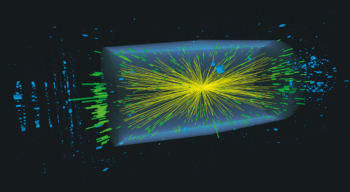The public launch in August of a new application for CERN’s volunteer-computing platform LHC@home produced an overwhelming response. The application Test4Theory, which runs Monte Carlo simulations of events in the LHC, was announced in a CERN press release on 8 August. Within three days, the number of registered volunteers swelled from a few hundred to nearly 8000. The application joins SixTrack, an accelerator beam-dynamics tool that has been used for LHC machine studies at CERN since 2004 and is now being prepared and extended in collaboration with the École polytechnique fédérale de Lausanne for studies of the LHC and its upgrade.
Given that the new application requires participants to install a virtual machine on their computer – not a trivial task – the level of enthusiasm is impressive. So, to avoid saturating the server that manages the project, there is now a waiting list for new participants. With the volunteer computing power at hand, nearly 20 billion events have already been simulated. According to CERN’s Peter Skands, the physicist leading the simulation effort, when the number of active volunteers passes 40,000 – which could happen later this year – the system will become equivalent to a true “virtual collider”, producing as many collisions per second as the real LHC.
Running part of a “virtual LHC” on their computers is clearly appealing to those who join LHC@home. The volunteers have not only dedicated a great deal of computing time to the project, but in many cases also provided expert assistance in debugging some of the software and managing the discussion forums that are part and parcel of a successful online citizen-science project.
• You can sign up to join the project at http://lhcathome.web.cern.ch/LHCathome/Physics/.





